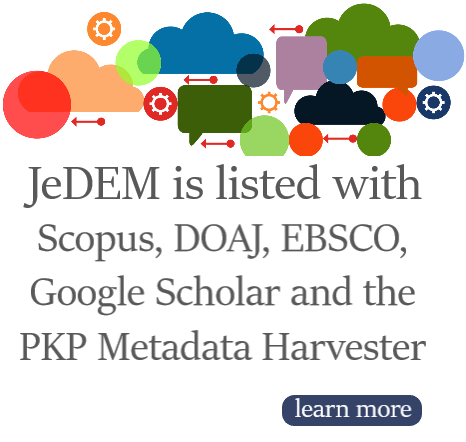Democratic Process in Online Crowds and Communities
DOI:
https://doi.org/10.29379/jedem.v4i2.137Keywords:
Crowds, communities, peer production, social networks, participation, collective action, online communities, crowdsourcingAbstract
This paper explores the underlying structures that support participation and reputation in online crowd and community-based peer productions. Building on writings on open source, peer production, participatory culture, and social networks, the paper describes crowd and community structures as two ends of a continuum of collective action - from lightweight to heavyweight - differentiated by the extent of connectivity and engagement between contributions and among contributors. This is followed by an examination of the recognition, reputation and reward systems that support these collectives, and how these affect who controls and who contributes information. The aim of this exploration is to gain insight for understanding motivations and structures for e-participation in these different, potentially democratic, forums.Downloads
Metrics
Downloads
Published
How to Cite
Issue
Section
License

JeDEM is a peer-reviewed, open-access journal (ISSN: 2075-9517). All journal content, except where otherwise noted, is licensed under the CC BY-NC 4.0 DEED Attribution-NonCommercial 4.0 International













